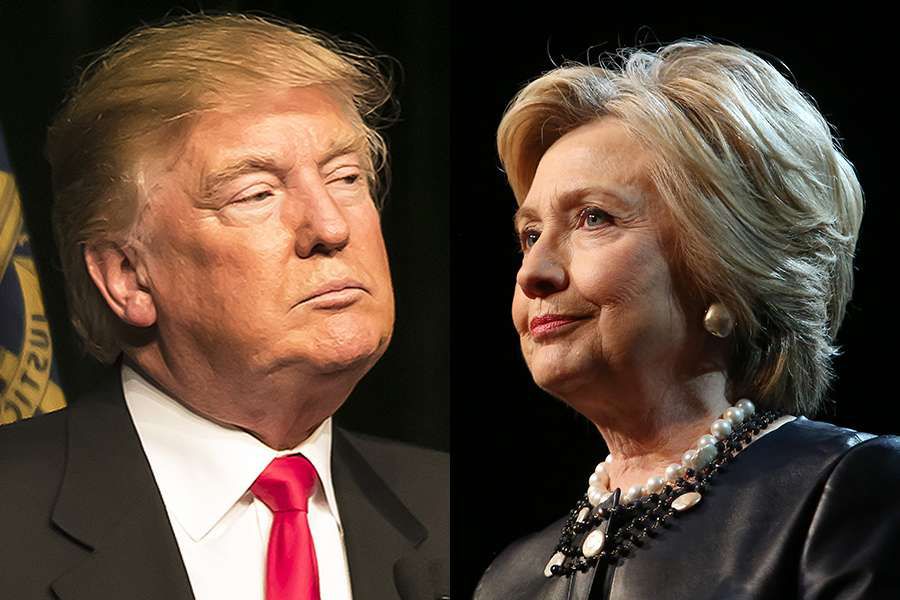Lincoln, Neb., Sep 30, 2016 / 03:33 pm (CNA/EWTN News).- Catholics who can't in good conscience vote for either major presidential candidate are well within their rights to pick a third option, says Bishop James Conley of Lincoln, Nebraska.
Voters need to discern whether there is a candidate in each race who can “advance human dignity, the right to life and the common good,” he said in his Sept. 30 column for the Southern Nebraska Register. “When there is, we should feel free to vote for that candidate — whether they are a member of a major party or not,” he said. “No Catholic should feel obliged to vote for one candidate just to prevent the election of another.”
The bishop advised a prudent course that avoids dangerous forms of “blind partisanship” and misleading political rhetoric and media alarmism. He acknowledged the possibility that “in extraordinary circumstances” some Catholics may decide there is no suitable candidate for a race and abstain from voting in that particular race. There are reasons in good conscience for some people to vote for a candidate who “would be most likely to do some good, and the least amount of harm,” on foundational issues like life, family, conscience rights and religious liberty, he said. Others may in good conscience vote for the candidate who “best represents a Christian vision of society, regardless of the probability of winning,” while others may vote for no candidate at all.
“Catholics will make different judgments about those questions, and come to different conclusions — this reflects the fact the Lord has given us free intellects and free wills,” he said.
The bishop also offered some basic guidelines about voting. He said voting helps the government achieve its “important purpose” of supporting the common good. “There are some issues in which the common good is clear and some issues which require careful discernment and prudent judgment. This discernment can, therefore, lead to different conclusions and ideas among people of good will,” Bishop Conley said, praising “robust discussion” among people who have the same goals.
However, Mother Teresa's stand for the right to life should guide Catholics in the voting booth, he said, adding that there are “abundantly clear” moral obligations in voting. “For example, no Catholic can vote in good conscience to expand legal protection for abortion, or to support the killing of unborn children.” Bishop Conley cited Mother Teresa’s words in a 1994 letter to the U.S. Supreme Court. There, she said the court’s 1973 Roe v. Wade decision legalizing abortion has “deformed a great nation.”
“The so-called right to abortion has pitted mothers against their children and women against men,” she wrote. “It has shown violence and discord at the heart of the most intimate human relationships. It has aggravated the derogation of the father’s role in an increasingly fatherless society. It has portrayed the greatest of gifts — a child — as a competitor, an intrusion, and an inconvenience.” “The right to life does not depend, and must not be declared to be contingent, on the pleasure of anyone else, not even a parent or a sovereign,” wrote the founder of the Missionaries of Charity.
Bishop Conley echoed the newly canonized saint, saying “abortion is a grave, unconscionable, and intolerable evil, and we cannot support it in the voting booth.” Citing negative trends in American culture, the bishop also stressed the need for citizens to fulfill their broader public obligations and opportunities outside of the voting booth.
“Americans today are, in many ways, disengaged, discouraged, and divided. Much of our political rhetoric is unhelpful. And family, community, and public life are in decline,” Bishop Conley continued. “We need a broader vision of public life, which values and proclaims the dignity of every human life, and which aims for the flourishing of individuals, families, and communities,” he said. “This broader vision won’t come through an election. It will come through life in Jesus Christ. The most important part of being good citizens is living as faithful and active missionary disciples of Jesus Christ.”

